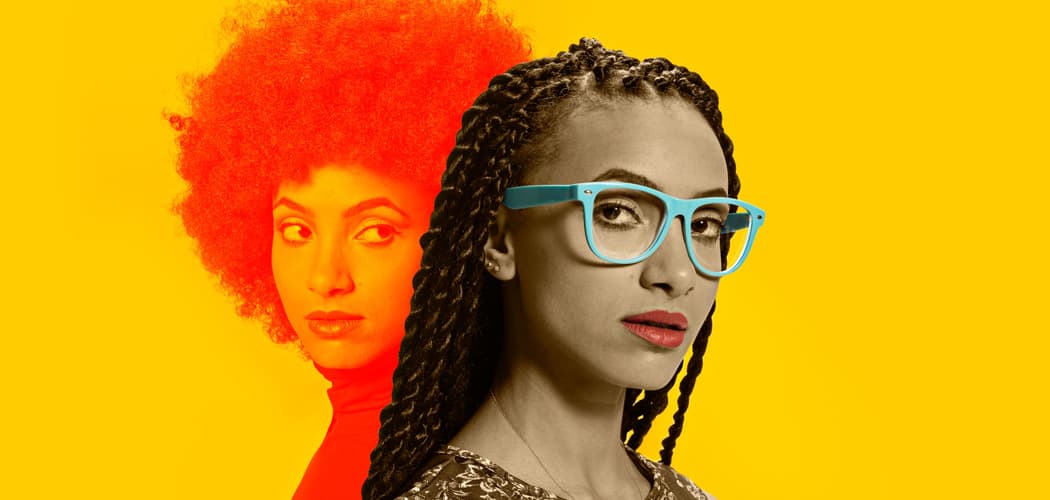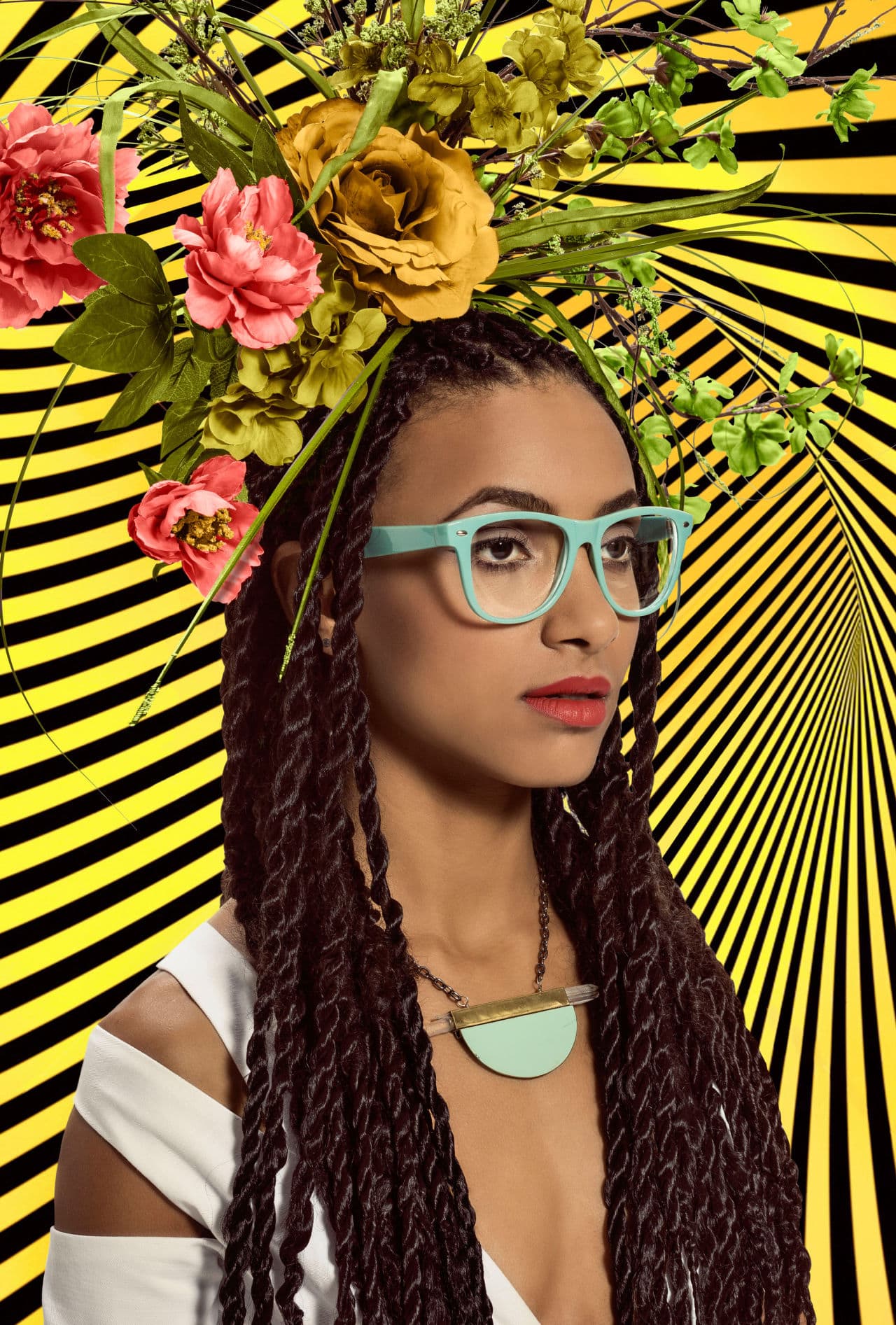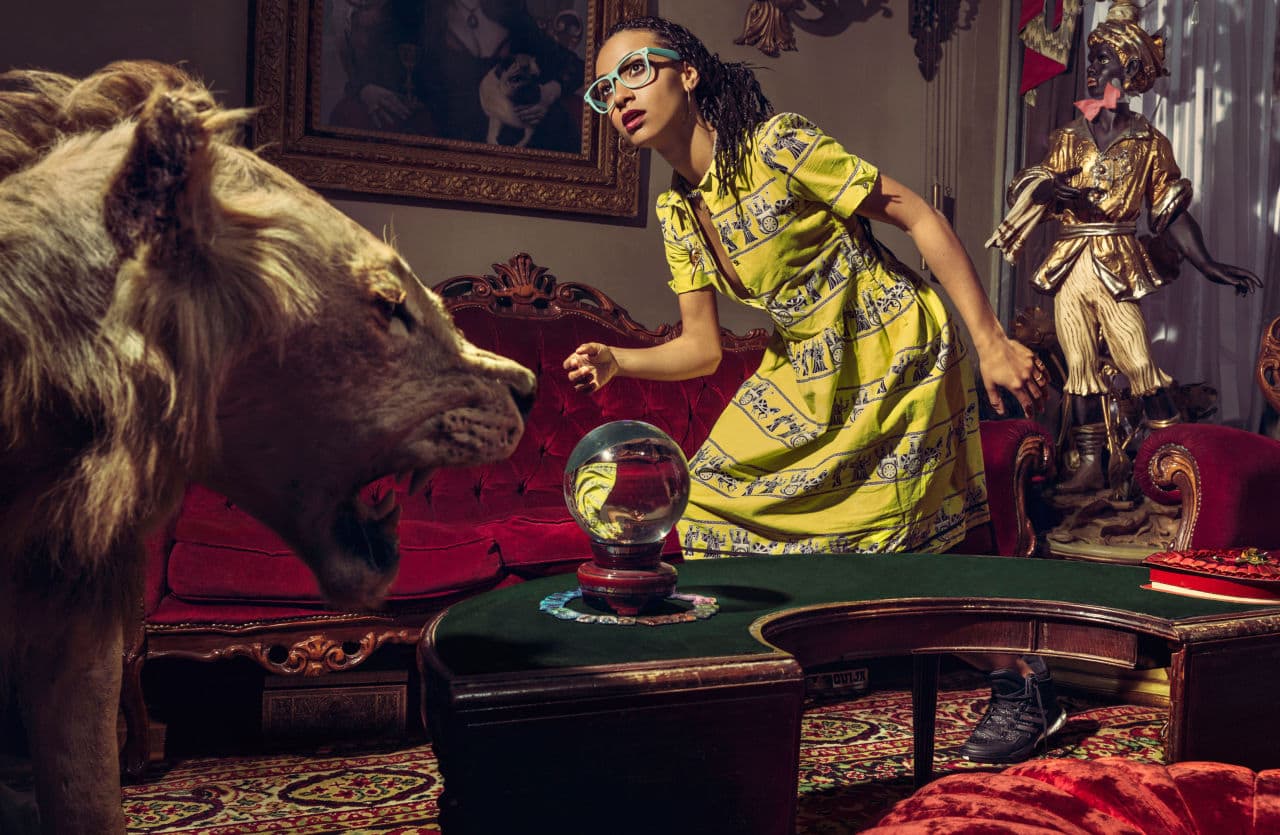Advertisement
Inspired By Musicians 'Working At Limit Of Their Capacity,' Esperanza Spalding Expands On Jazz

If you’re familiar with Esperanza Spalding’s name, it’s probably because of the 2011 Grammy Awards. That year, the 26-year-old Spalding, a Berklee College of Music-trained jazz bassist and singer, beat out Justin Bieber, Drake, Mumford & Sons and Florence and the Machine to win Best New Artist, one of the Recording Academy’s highest profile prizes. She was the first jazz artist in history to do so.
Spalding’s crossover appeal has always been apparent. She is charismatic, stylish and — it should go without saying — prodigiously talented. Spalding’s musicianship is preternatural and voracious: She taught herself Beethoven by ear on the piano at the age of 4, started playing the jazz circuit in her hometown of Portland, Oregon, within a year of picking up the bass as a teen, and at age 20 became one of the youngest people to ever serve on the faculty of Berklee.
Though her jazz bonafides have never been in dispute, Spalding — who plays the Shubert Theatre in Boston on Tuesday, April 12 — has also never been a purist. Her major label debut, “Esperanza,” referenced pop, rock and Brazilian music and her two subsequent releases, “Chamber Music Society” and “Radio Music Society,” continued in this exploratory vein. Though jazz has long carried with it connotations of self-seriousness and rigorous study, Spalding’s M.O. is insatiably omnivorous and eagerly open.
Spalding’s latest effort, “Emily’s D+Evolution,” is her grandest, most deliberate step into new territory. The promotional photos say it all: The Spalding who rose to fame in 2011, with her trademark Afro, shimmers like a ghost next to the Spalding of today, who sports long braids and eyeglasses with big plastic pastel frames. The music, too, is brighter, bolder. On this album, Spalding jettisons her big-bellied acoustic bass in favor of a sleek five-string electric, adding drums and electric guitar for a souped-up variation on a traditional jazz trio. On “Emily’s D+Evolution,” pop-worthy hooks flash by amid a ferocious swell of sonic signifiers: prog rock, Joni Mitchell, funk.

The Emily of “Emily’s D+Evolution” is something akin to an alter-ego for Spalding. As a child she went by her middle name, Emily, and her live show — an elaborately staged mishmash of performance art, puppetry and music — captures the whimsical quality of childhood. In character as Emily, Spalding is a precocious sprite, wide-eyed, smiling and utterly confident. She makes a feather-festooned cardboard crown look as natural as the 10-gallon hat on John Wayne’s head.
In a recent interview, Spalding talked about the meaning of “d+evolution,” the idea of love and returning to Boston. The following conversation has been excerpted and edited for clarity.
Amelia Mason: I'm wondering if you can tell me more about this character Emily — if she's an alter-ego or a muse?
Esperanza Spalding: Yes. Oh that's good — I like "muse," that's interesting. I wouldn't use that word, but I like that word. I haven't thought about muses in a while. So, I feel like Emily is the embodiment of an energy, of a mode of interacting with the world around us. … Emily emerges and interacts with the world with fresh eyes. She allows herself to evolve and devolve with the people around her based on the experiences she has. And because she doesn't have any qualms about that, and she's never been taught that a person only moves in one direction or the other, she completely embraces it and has the full experience of evolved and devolved and moving in and out of one another and blending them together, and dancing with them, and trying them on. And through that process she is changed.
Were you feeling like you were embodying that character as you were writing the music, or did she emerge when you were working that stage show out?
Well, being Emily, the alter-ego, whatever term people want to use, first came to my awareness October 2013. And I recognized that it was a music and a mode of performance that I wanted to explore. I didn't know that I wanted to explore it until she showed up in my brain. [I thought] “OK, s---, I guess that's what I'm going to be doing. And I like the sound, and I like the way I'm moving, and let's go there.” So from then on it was a matter of asking what Emily was. Because I knew it was strong and full. And I knew it was what I wanted to dedicate my life to, and I also really felt like she came here to do something, but I didn't know yet what it was.
Reconciling different aspects of ourselves is something that has emerged in a few different descriptions I've read. When I was listening to the album, I was picking out these lines, and a lot of them actually sounded really personal to me. There's this one, "I may not be really in love with you/ It's the idea of love that I'm into." Which just sounds like a pop song to me. Where does a line like that come from?
Well in the show, she's explaining to somebody who's fallen for her that she doesn't really do that. Yes, she may be tantalizing, and yes, she is passionate, and she will gladly engage on a physical level and a passionate level with this person that she meets here. But she's saying, “Don't misinterpret that. Because I'm not something you can have. I'm not even a person like you. I've come here, I'm new, I don't know what I am. But I can't, I’m not here to do that with you,” is what she's saying. “But I would love to explore the phenomenon of love and explore what it means to you and explore what it means to me. But don’t try to squash it into a dynamic called ‘in love.’ ”

That's so interesting because it struck me as a very human sentiment. I mean I was probably projecting all my own experiences onto it, right?
[Emily is] embodying something that we experience as humans, of course. That's all archetypes function as. And deities and mythic figures and fairies. It's a way to distill an element of us so that we can look at it and interact with it. And in her version — I mean, in my version of an archetype, the one that's being expressed through Emily, she is sort of an unattached being that can have these experiences with the evolved and the devolved and with the carnal and the primal because she's neither. She is the energy that interacts with both, that brings both into play with one another. So in the show, when she's singing that line to these people who are cerebral, what it means is, “Don't try to turn it into what you already know. I can't do that with you. All we can do is engage with the idea of love. The phenomenon of love that you experience. So don't call it 'in love' or 'I'm your girlfriend' or 'let's get married.' "
And if you want to extract the song from the show, I think we've all experienced that, and it's kind of petty. It's a weird sort of petty justification for the fact that you just want to f--- around with someone. So in a way, right there you're exhibiting “d+evolution.” You're using your most advanced cerebral faculties to rationalize something that's really just some carnal, primal s---.
This album is very genre-crossing. I guess you could say that about all your albums, but I'm wondering if you consider jazz to be your core identity still.
I don't consider it. I mean, when I'm practicing, I think about Clark Terry. I think about Wayne [Shorter]. I think about Gene Perla. I think about these people who have existed in music and I admire them the most. I am most inspired by them. I think about, when it comes to lyrics, I think about MF Doom. I think about Joni. I think about Abbey Lincoln. I think about other poets that are quote-unquote “non-musicians,” and they inspire me the most. I'm excited by and interested in people who are working at the limit of their capacity. Always going for the most they can give and do. And everybody I mentioned does that in their respective field. Because I'm an instrumentalist, and I got the addiction for improvised music, for me it's a way of expanding my vocabulary on my instrument. But, I remember George Wein one time, he said, “The more you learn about [jazz], the more you realize how difficult it is to do.” The more I’ve been playing, as much as I've played in my life, and as many people that I've had the luxury to play with, the more I see that I'm just a beginner. But I'm a beginner on a trajectory that somebody would call a jazz musician.
I didn't really answer your question, but it's because I just don't know about that word. I'm fine with it, because people fought for that genre to get respect, you know? People really gave so much to keep the music thriving and moving associated with that nomenclature, and I want to honor that.
I hear you. As soon as I said that question I realized how annoying it could be.
Oh my god, it's not annoying at all. I just — I don't know. I don't know. Maybe because I haven't been playing much of it publicly with people right now. And I sort of feel like somehow not performing it for a year, really, except for on the side, makes me feel like I have taken a break from the team or something. Like I'm not on this season.
Are you looking forward to coming back to Boston?
Every time I come back to Boston I feel really welcome. I mean super welcome. There's this real supportive, “Yeah, go girl” energy. It's really visceral. Sometimes in Portland, I feel like people are scrutinizing, looking with a scrutinizing eye, like, “All right, what's this hotshot here to do? We knew you when you were eight. What's all the fuss about?” But when I go to Boston, it feels like, “What have you been doing since we saw you last?” And it's with a lot of positive intrigue. I feel that viscerally and I really appreciate it.

